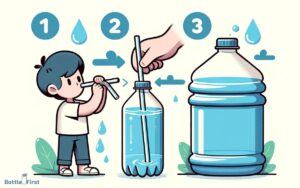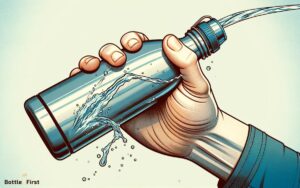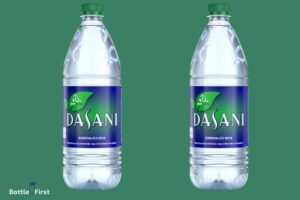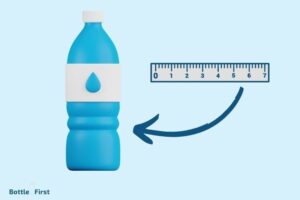Can You Put a Plastic Water Bottle in the Freezer? Yes!
Yes, you can put a plastic water bottle in the freezer, but it is crucial to be aware of the type of plastic and the potential for the water to expand upon freezing, which could cause the bottle to crack or leak.
Freezing water in plastic bottles is generally safe if you follow proper precautions. As water freezes, it expands, and this expansion can cause the plastic bottle to deform or even crack if there is not enough room for the ice to expand.
Additionally, you should consider the type of plastic the bottle is made from. Some plastics may become brittle and more prone to breaking at low temperatures, or they may leach chemicals into the water when subjected to freezing and thawing cycles.
Here are some considerations:
- Check if the bottle is freezer-safe.
- Leave some space at the top of the bottle to allow for expansion.
- Avoid reusing single-use bottles for freezing.
Example:
A bottle made from high-density polyethylene (HDPE, often labeled with a #2 recycling symbol) is typically more freezer-safe than one made from polyethylene terephthalate (PET, labeled with a #1).
To safely enjoy chilled water, freeze your bottle with care, ensuring it’s made of freezer-appropriate material and isn’t filled to the brim, preventing potential messes or contaminants.
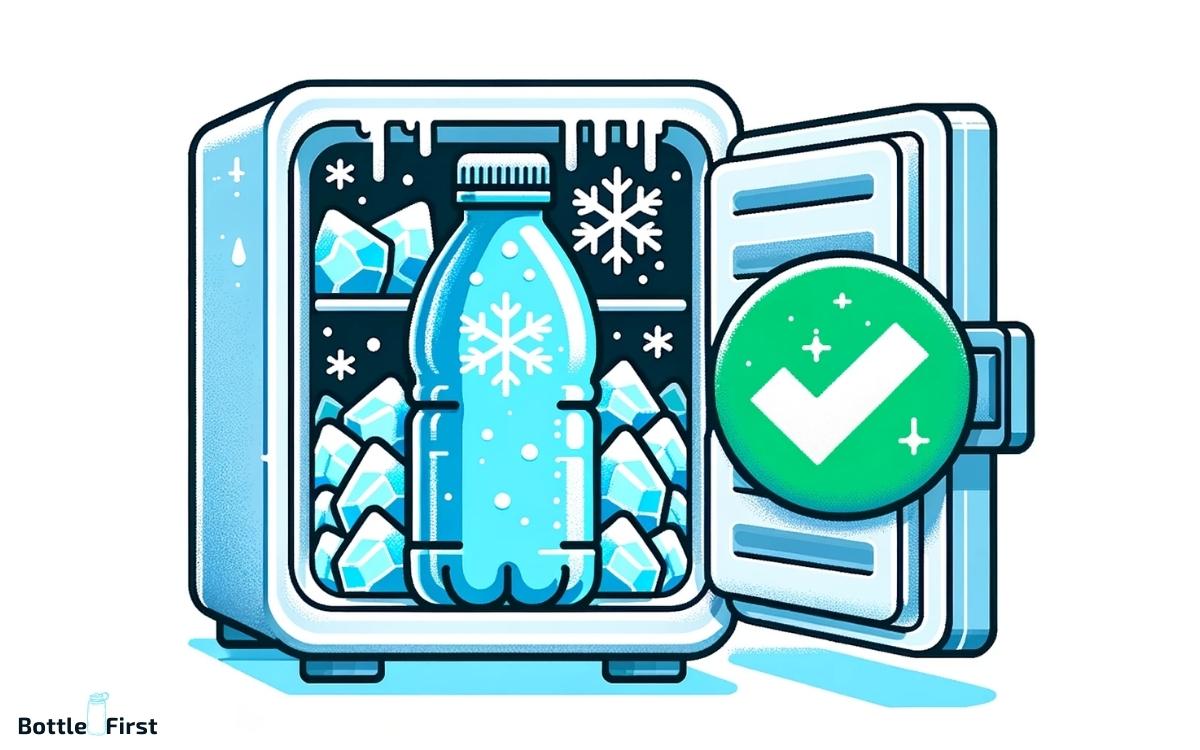
Key Takeaway
Understanding Plastic Water Bottle Safety
When considering the safety of freezing plastic water bottles, it is important to understand the potential risks associated with this practice.
While many plastic bottles are designed to withstand freezing, certain types of plastic may leach chemicals such as BPA or phthalates when exposed to extreme temperatures. These chemicals can have adverse health effects when ingested.
It is crucial to use bottles specifically labeled as safe for freezing, typically made from high-density polyethylene (HDPE) or polypropylene. These plastics are more resistant to leaching and are considered safer for freezing.
Always check the bottle’s label for guidelines on freezing and consult the manufacturer’s recommendations.
Innovative advancements in plastic manufacturing have led to the development of safer, freezer-friendly bottles, ensuring both convenience and safety for consumers.
Potential Risks of Freezing Plastic Bottles
The potential risks of freezing plastic bottles include the leaching of chemicals such as BPA or phthalates when exposed to extreme temperatures, which can have adverse health effects when ingested.
When considering the potential risks of freezing plastic bottles, it’s important to keep in mind the following points:
- Increased health concerns: The leaching of harmful chemicals into the water due to freezing can pose significant health risks, impacting not only physical health but also mental well-being.
- Environmental impact: The release of these chemicals into the environment can contribute to pollution and harm ecosystems, leading to a sense of urgency for more sustainable solutions.
As we strive for innovation and progress in our daily lives, it’s crucial to consider the impact of our choices on both personal health and the environment.
Tips for Freezing Plastic Water Bottles
It is essential to consider the potential risks of freezing plastic water bottles before implementing tips for preserving them in the freezer.
To freeze plastic water bottles effectively, follow these innovative tips.
First, ensure the bottle is only three-quarters full to allow for expansion as the water freezes. Additionally, squeeze out any excess air before tightly sealing the cap to prevent the bottle from bursting.
Consider using bottles made from high-density polyethylene (HDPE) or polypropylene, as these are more resistant to cracking at low temperatures.
To expedite the freezing process, place the bottle near the freezer’s vents or on a flat surface for even distribution of cold air.
Finally, label the bottles with the freezing date to keep track of their shelf life.
Alternatives to Freezing Plastic Water Bottles
Consider alternative methods for preserving the quality of your water without subjecting plastic bottles to freezing temperatures.
Innovative Water Bottles
- Reusable stainless steel or glass bottles offer a sustainable and non-toxic alternative to plastic. They keep water fresh without the risk of chemicals leaching into the water, providing peace of mind.
- Cutting-edge self-filtering water bottles with advanced filtration technology ensure access to clean water at all times, reducing the need for freezing water bottles and minimizing environmental impact.
Conclusion
In considering the safety of freezing plastic water bottles, it is important to weigh the potential risks and alternatives.
While freezing plastic bottles may introduce risks of chemical leaching, there are tips for safe freezing and alternative methods to consider.
It is essential to prioritize safety and make informed choices when it comes to storing and using plastic water bottles.
Frequently Asked Questions
Are There Any Specific Types of Plastic Water Bottles That Should Not Be Frozen?
Certain types of plastic water bottles may not be suitable for freezing due to the potential leaching of harmful chemicals. Always check the bottle’s label for freezer-safe instructions and opt for BPA-free, food-grade plastics for peace of mind.
Can Freezing Plastic Water Bottles Affect the Taste of the Water?
Freezing plastic water bottles may affect the taste due to chemical leaching, disrupting the water’s flavor.
This can be exaggerated in some cases, posing a challenge for those seeking consistently fresh-tasting water. Innovative solutions can mitigate this issue.
How Long Can a Plastic Water Bottle Safely Stay in the Freezer?
The duration a plastic water bottle can remain safely in the freezer depends on its material and design. Generally, it’s advisable to limit freezing time to a few hours to prevent damage and maintain the bottle’s integrity.
Can Freezing Plastic Water Bottles Cause Them to Leach Harmful Chemicals Into the Water?
Can freezing plastic water bottles cause the leaching of harmful chemicals into the water? This concern arises from potential chemical migration due to temperature changes.
Understanding the composition and characteristics of plastic materials is crucial for addressing this issue.
What Are the Potential Dangers of Reusing a Plastic Water Bottle That Has Been Frozen Multiple Times?
Reusing plastic water bottles that have been frozen multiple times may pose potential dangers due to the risk of chemical leaching. This can compromise the integrity of the plastic, leading to the ingestion of harmful substances.

